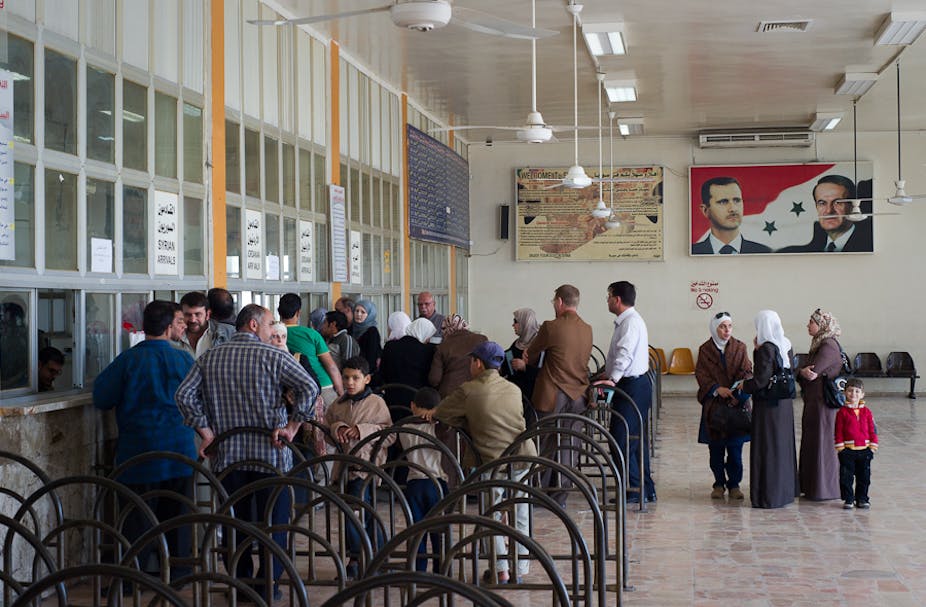The use of medicine as an “instrument of violence” in both the Iraq War and the Syrian conflict shows how blurred the lines between civilian and combatant spaces can become. According to the authors of a new paper into the impact of conflict and displaced populations on health in the Arab region, evidence of doctors forced to take part in torture and work in militarised hospitals has led to a breakdown in trust for spaces previously considered safe havens.
Taking the war in Iraq and the Syrian conflict to show how “previously robust national health systems” can be destroyed, the paper – part of a Lancet series on health in the Arab world – suggests “therapeutic geographies” have emerged: regional medical hubs that cater for huge numbers of those displaced and which operate within and across borders during war and conflict.
These hubs extend beyond places of humanitarian aid such as refugee camps and include places where people specifically travel to get help because they can’t access it at home.
“Hundreds of thousands of Iraqi and Syrian citizens who still live in their respective states have been travelling to seek essential medical care in regional countries like Lebanon, Jordan, Turkey, Iran and India,” said Omar Dewachi, co-author of the report. “Many have been driven by the breakdown of previously robust national healthcare systems, the deterioration of everyday security, and the lack of trust in militarised and politicised medical systems.”
In addition to seeking help for medical emergencies such as trauma and war injuries, people also seek help for chronic conditions such a cancer and heart disease. “Many families sell belongings or borrow money to attend to the affliction of a family member,” Dewachi said. “They struggle with visa regulations, bureaucracies and high-cost medical care, as well as the potential of being exploited by profit-driven hospitals in the region.
"These compound the long-term effects of the war on already vulnerable populations and present us with long-term challenges in post-conflict state building.”
The tactics of war
The paper suggests that the fallout following the 9/11 attacks and the subsequent US-led “war on terror” have contributed to conflicts in the region and produced “a sense of permanent and pervasive war”.
The war in Iraq destroyed its national health system – and this is also now happening in Syria, where hospitals and healthcare facilities have become part of the tactics of war, the authors said. Alongside reports of attacks on and the destruction of hospitals, healthcare workers faced pressures, including prioritising soldiers and withholding care, meaning the neutrality of those spaces could no longer be assumed.
The authors report instances in other Arab countries where hospitals and healthcare staff have been targeted or used during conflict. Bahrain’s Salmaniya Hospital, for example, was occupied by police and military after unrest in 2011 and became a stand-off point between state and opposition, with doctors arrested for treating Shi'a demonstrators.
Iraq has also seen a “mass exodus” of health professionals. The authors attribute this largely to the targeting of doctors by militia and gangs and said the exodus “has added to the devastation of the country’s medical care and public health.” A survey of doctors in Iraq between 2008-9 suggested the majority (80%) had suffered violence, including from patients families.
Helping and hindering
Ordinary citizens also inevitably flee violence. According to figures from the UN High Commissioner for Refugees (UNHCR), Iraq was the third-highest source of refugees worldwide by the end of 2012, while Syria was ranked fourth with 728,500 refugees. Current figures are already much higher: 1.9m Syrian refugees and another 4.3m displaced within the country.
While other Arab countries such as Jordan and Iran have stepped in to help, the authors said, involvement and funding for struggles in the region by countries such as Iran also exacerbates the problem.
“We are dealing with very complex and intertwined geographies of violence and healthcare that are redefining the region as a whole,” Dewachi said. “Because of the effects of these two wars, the east of the Mediterranean shares this predicament of largest global refugee crisis. Thinking regionally to address the long-term effects of such conflict is critical.”
Though different in time and context, the situation in Syria and war in Iraq shared some common attributes, he said. “The effect of the breakdown of welfare institutions is remarkable and challenges future attempts of reconstruction (as we have seen more clearly in the Iraqi case).”
Rebuilding trust
In the longer term, rebuilding national health systems will not just be about security, but trust. For Syria, the subject of the Geneva II conference this week, this is clearly a long way off.
“This will be very difficult and probably one of the most challenging tasks,” Dewachi said. “We’ve seen massive demographic transformations in the whole region and the rise of contentious sectarian and communitarian sentiments.”
He added: “Many of the effects of these long conflicts are irreversible and cannot be undone … Many of us have been feeling helpless … Still, I do believe and hope that such a historical moment will give birth to an era of reflection … our task is to document and attempt to think critically about such conditions and the possibility of political action that will shape a better future for populations. Meanwhile, our daily actions to support those who are in dire need will have to continue.”

